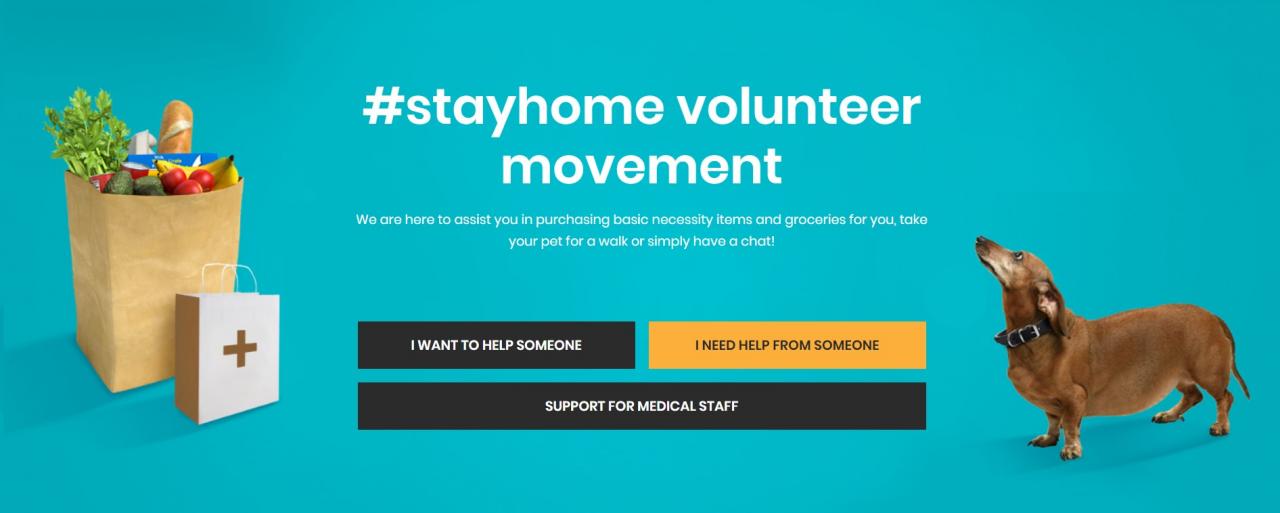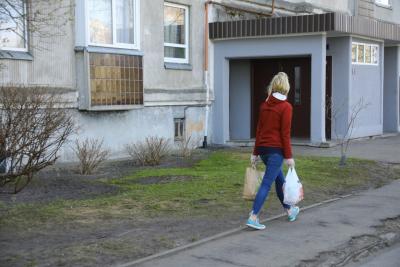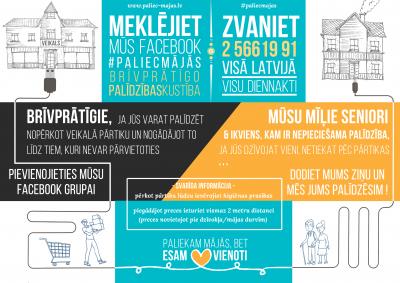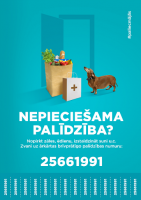
On the first days of the Covid -19 crisis, the voluntary assistance network, which was named “Stay Home”, was born and developed fast in Latvia. We invited for a conversation about this movement the co-author of the voluntary movement “Stay Home” Inese Vaivare to present to both the local and broader audience – beyond Latvia’s border – the activities and the mission of this movement.
Briefly, how did the voluntary movement “Stay Home” arise?
The story is rather unusual. My daily job is in the non-governmental sector; however, for quite some time already I had been thinking of how to make our sector more open to the new, to technologies, change. We are doing good things; and, yet, we are not known well enough, and the generation change is not happening.
When, one month ago, movements were restricted, I noticed that online hackathon was organised – an event to search for new possibilities to curb the Covid-19 crisis with the help of technologies. I overcame my own stereotypes, the assumption that such events were meant for the young and the cool ones and “jumped in”.
There we, eight professionals from diverse fields, met and identified a significant challenge – how to link active technology users with those, who need assistance but whose only technology is, let’s say, a phone with “buttons”.

Inese Vaivare, co-author of the voluntary movement “Stay Home”
What is the mission of the movement “Stay Home”? What are the tasks that the participants perform?
We want to set into motion the voluntary movement in Latvia, but such that is not directed at “bubbles” but cooperation and humaneness, helping the neighbours. Our platform allows anyone to ask for help – the hotline number +371 25661991 operates on a 24/7 basis and takes calls in Latvian, Russian and English. Likewise, anyone can become a volunteer by registering on www.paliec-majas.lv. It can be only a small task per week.
At present, we are focusing on help in a crisis – deliveries of groceries and other purchases, taking pets for a walk so that people can stay at home. Although high-risk groups – seniors, people with health conditions – are the priority, for us it is important to support anyone – an exhausted health worker or social worker, a single parent or a person living alone and self-isolating.

©F64, photographer Dmitrijs Suļžics, volunteer Zane Skujiņa
What is the response like? How large is the group of volunteers?
We have almost 500 volunteers throughout Latvia. It is a very high number, taking into account that the initiative was launched only a month ago. It is not that easy with getting requests, people find it difficult to trust their fellowmen; it is hard to ask for help. However, we want to encourage them - the contact information is known only to volunteers who are identified with the help of Internet Banking or e-signature, the deliveries are contactless – money is left outside the door or the Internet Banking is used, after the volunteer has left the deliveries. After that, we wave to each other, through the window.
What are the most frequent requests, what kind of help people seek?
Simple requests are the most frequent ones, because seniors are unable, physically, to bring home groceries for a week. It can be bread, that the person is accustomed to buying, milk, and some vegetables.
People who have no means for buying food also get in touch with us but, at the moment, we direct them to other organisations. Currently, however, we are discussing with our supporters also some charity options.

Infographics about the movement “Stay Home”
Please, tell who and how can become involved in the voluntary movement. Can NGOs apply and come to assistance?
We really need NGOs’ support because NGOs are those trusted friends of people who can tell about this Hotline, encourage to phone and also become volunteers. These active persons, definitely, will continue their activities also after the crisis and, most probably, will become the new, active members of NGOs.
What is your forecast, will this movement continue after the Covid-19 crisis is over?
Definitely, because helping the neighbours and community support were the things that we had slightly neglected in our everyday rush.
In conclusion, what would you wish to all those diligent and helpful people who, in these extraordinary times, become involved, who do not remain indifferent but rather help their fellowmen?
I would like to say a very simple but very significant word – thank you! No task is minor, even if it is only phoning a lonely person. At present, cooperation and the support of our fellowmen help us stand strong. And good health to all.

Thank you for this conversation. Interviewer: Zinta Gugane, project coordinator of the NGO House

